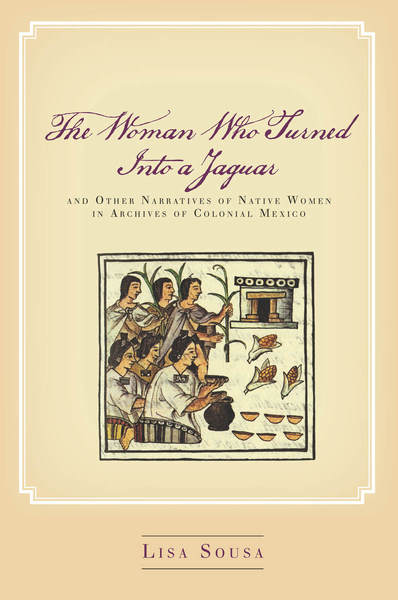
January 2017
424 pages.
$65.00
30% off print versions in shopping cart!
Cloth ISBN: 9780804756402
This book is an ambitious and wide-ranging social and cultural history of gender relations among indigenous peoples of New Spain, from the Spanish conquest through the first half of the eighteenth century. In this expansive account, Lisa Sousa focuses on four native groups in highland Mexico—the Nahua, Mixtec, Zapotec, and Mixe—and traces cross-cultural similarities and differences in the roles and status attributed to women in prehispanic and colonial Mesoamerica.
Sousa intricately renders the full complexity of women's life experiences in the household and community, from the significance of their names, age, and social standing, to their identities, ethnicities, family, dress, work, roles, sexuality, acts of resistance, and relationships with men and other women. Drawing on a rich collection of archival, textual, and pictorial sources, she traces the shifts in women's economic, political, and social standing to evaluate the influence of Spanish ideologies on native attitudes and practices around sex and gender in the first several generations after contact. Though catastrophic depopulation, economic pressures, and the imposition of Christianity slowly eroded indigenous women's status following the Spanish conquest, Sousa argues that gender relations nevertheless remained more complementary than patriarchal, with women maintaining a unique position across the first two centuries of colonial rule.
About the author
Lisa Sousa is Professor of History at Occidental College.
"Lisa Sousa's book makes a huge contribution to the analysis of Mesoamerican gender roles during the prehispanic and colonial periods. It is wide ranging in its portrayal of gender and sex, makes excellent use of the author's deep linguistic knowledge, and presents a compelling argument for the complementarity of gender roles even as a more patriarchal ideology began to influence colonial indigenous cultures."
—Susan Kellogg, University of Houston
"The Woman Who Turned into a Jaguar is an exciting feat of scholarship, brought to life by voices and perspectives excavated from myriad sources—many in indigenous languages and some requiring sophisticated iconographic skills. Lisa Sousa's focus on households' and individuals' agency in moderating sociocultural change fills significant gaps in our understanding of gender ideology and practices within indigenous communities across colonial Mexico."
—Stephanie Wood, University of Oregon
 PRESS
PRESS






